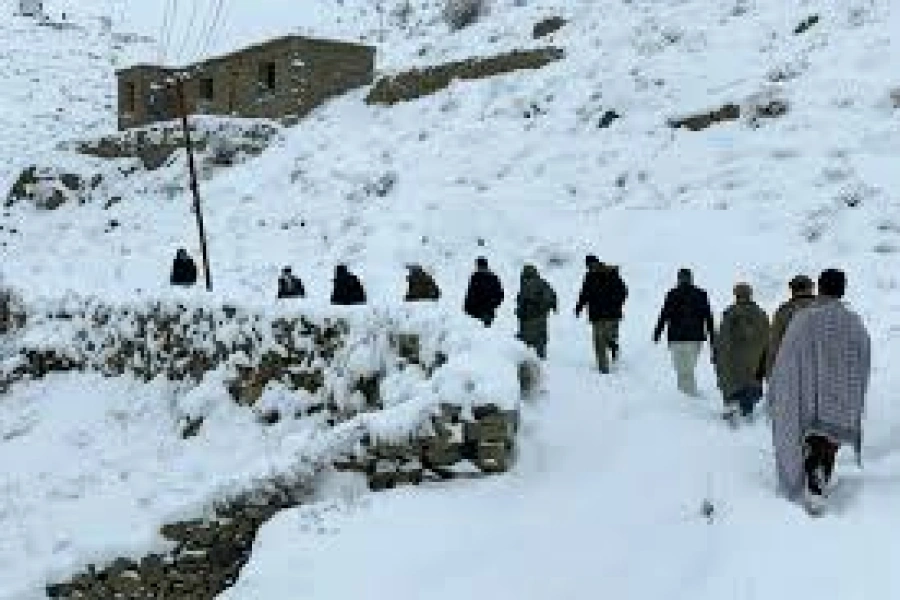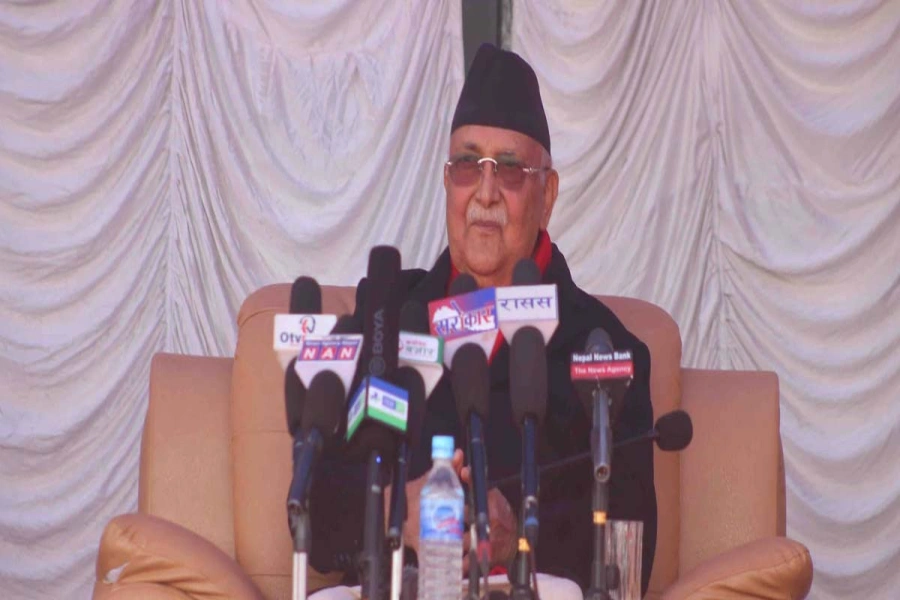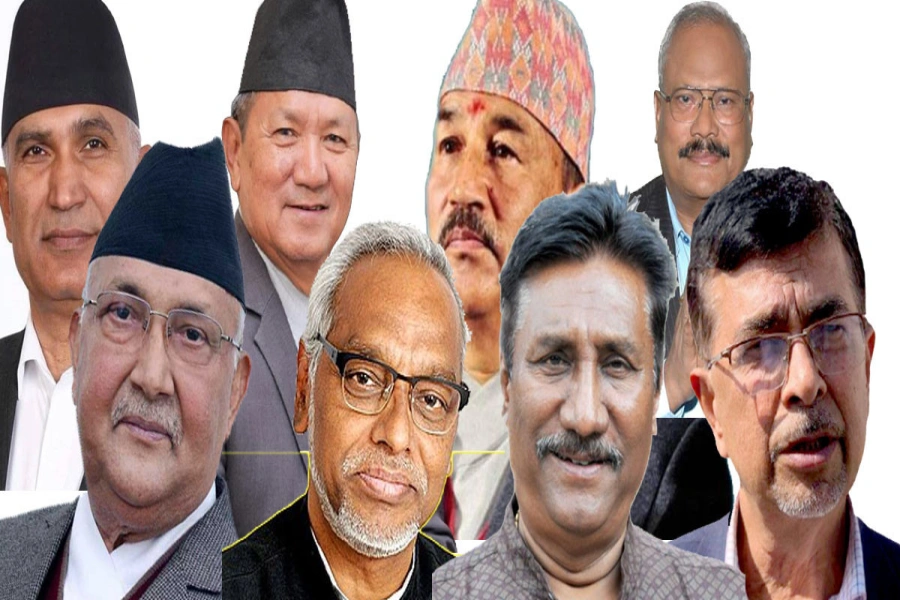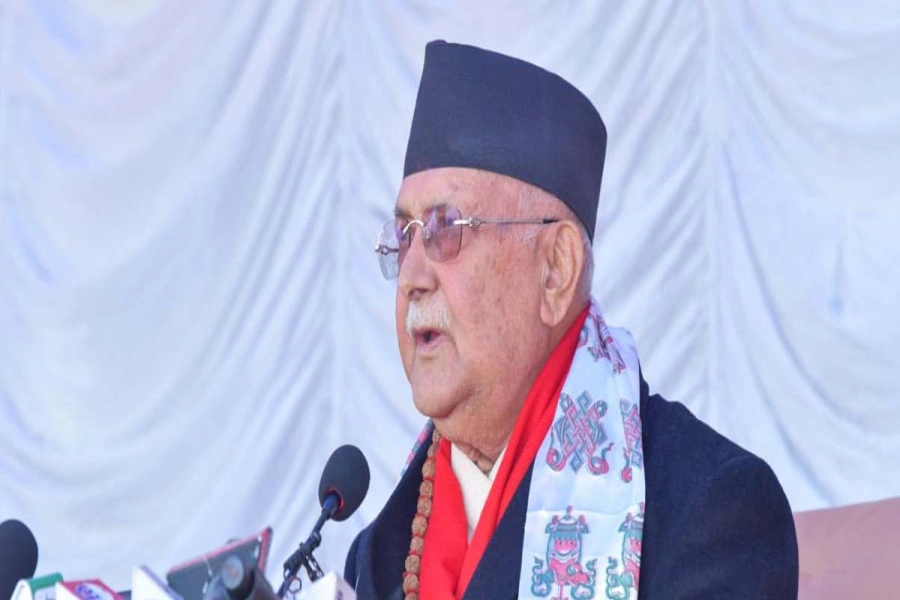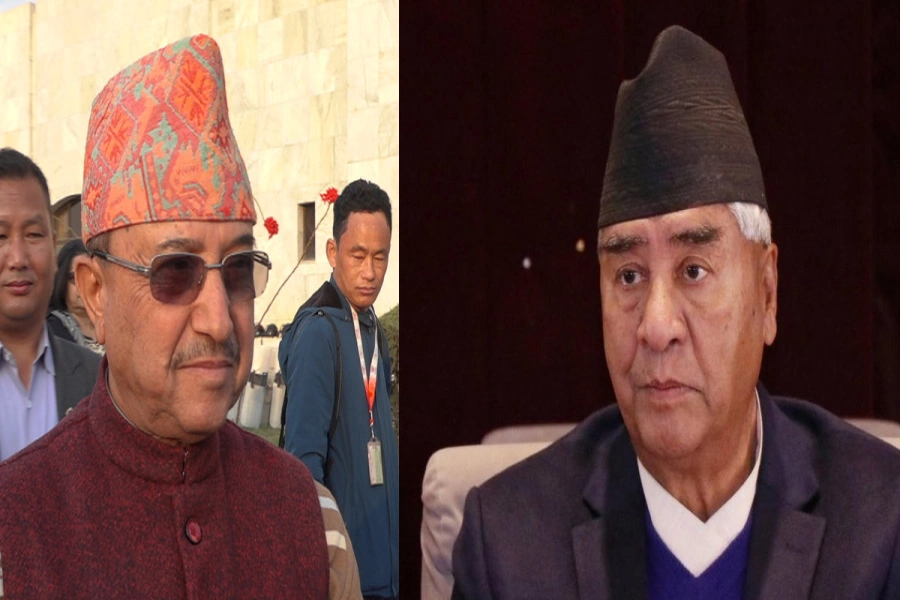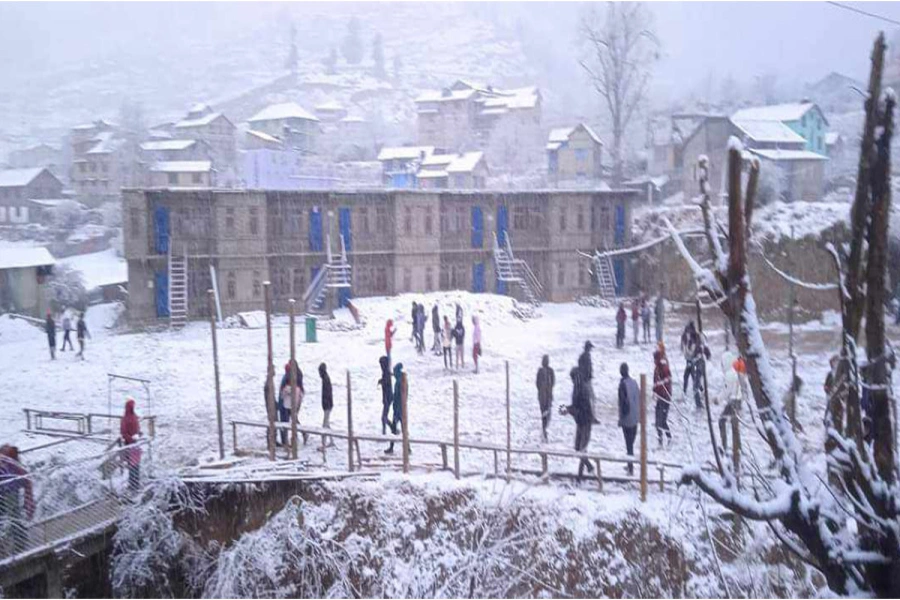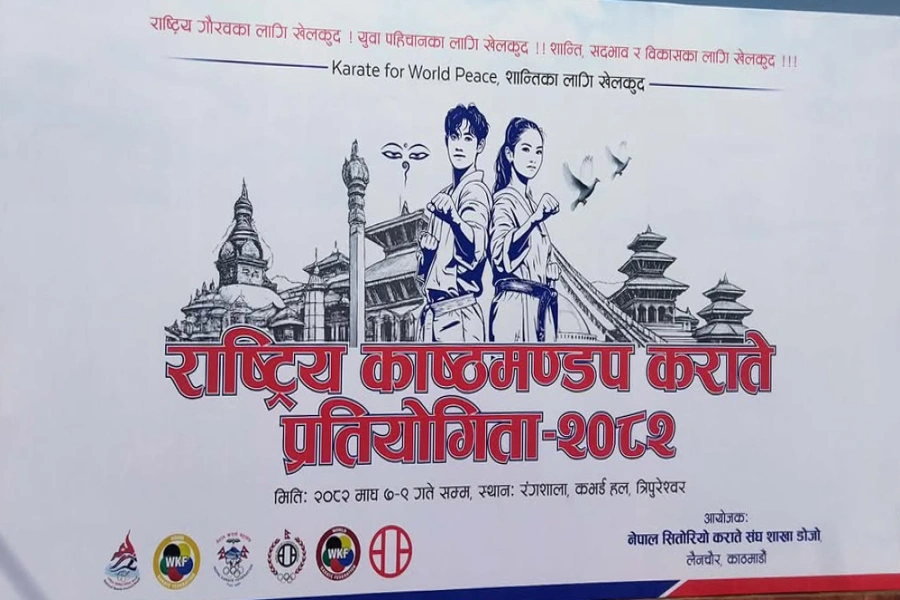Highlights:
*Swiss support is transitioning from infrastructure construction to providing technical assistance, knowledge, and expertise.
*Switzerland will continue supporting Nepal in implementing the federal constitution and advancing its economic development.
*The Swiss partnership is now increasingly shifting from aid to trade.
*The focus is now on facilitating business entry into Nepal by bringing Swiss innovation, technology and expertise.
Since the establishment of diplomatic relations in 1956, Nepal and Switzerland have shared a strong bilateral partnership marked by cooperation in diverse sectors, from generous development assistance to education and employment through skill-based trainings. One of the most notable contributions of Switzerland is the construction of over 10,000 trail bridges across Nepal, providing critical connectivity in rural areas—a testament to Swiss support that Nepalis deeply value. The goodwill towards Switzerland is so profound that both leaders and citizens in Nepal often express a desire to see Nepal emulate Switzerland’s development journey and success as a prosperous nation. In this context, Nagarik Daily’s Editor-in-Chief, Guna Raj Luitel and Republica’s Editor Kosh Raj Koirala, recently sat for a conversation with Swiss Ambassador to Nepal, Dr Danielle Meuwly. The discussion delves into the enduring partnership of nearly seven decades between the two nations, explores key achievements, identifies areas for further strengthening bilateral ties, and examines Switzerland’s potential role in supporting Nepal’s aspirations for sustainable development, economic growth and regional energy leadership. Excerpts:
Switzerland and Nepal have enjoyed strong bilateral relations for decades. As we approach the 70th anniversary of diplomatic ties, how do you reflect on the key achievements of this partnership and what priorities will you focus on during your tenure to build on these ties?
There is a remarkable friendship between our two countries. The friendship is solid and long-lasting. We will celebrate the 70th anniversary in 2026. I would like to underline that the collaboration is excellent, not only at the government-to-government level but also at the people-to-people level. Where does this come from? I think it’s because Switzerland stayed on the side of Nepal during difficult times in its recent history: the armed conflict, the peace process, natural catastrophes like the 2015 earthquake, the pandemic, and more recently, the earthquake in Jajarkot last year and heavy rainfall this year. We have been providing quick relief assistance after these events.
There are a lot of good achievements—enough to write a book about them! To highlight two: the reforestation of community forests in Nepal, which is largely due to Swiss-financed initiatives, and the trail bridges, which have had a transformational impact on rural connectivity. For the future, our goal remains to support Nepal on its economic development path, ensuring improvement in the well-being of all citizens in a federal state, which is inclusive and accountable.
How will we do that? There will be two main areas of focus. First, federal state-building, because a solid framework of institutions is crucial. We will continue to support Nepal in implementing the federal constitution. Switzerland is well-placed to do that because we understand the value of a federal constitution in ensuring peaceful coexistence in a diverse society. Second, our partnership is increasingly shifting from aid to trade. We are supporting Nepal’s goal to graduate from least developed country status by 2026 and ensuring it is on the path of sustainable economic growth, creating jobs, and reducing inequality and poverty.
What are your key priorities for strengthening diplomatic, economic and cultural ties between Switzerland and Nepal in the coming years?
This is a broad question. On the diplomatic front, I would like to first recall that on June 12 this year, our two presidents met in Switzerland. Before that, in February, bilateral political consultations were held in Switzerland and went very well. The next round of political consultations will take place in Nepal in 2026. Preparing for these consultations and the 70th-anniversary celebrations will be the priorities.
Reviewing transitional justice

As for the cultural ties, we have always fostered cultural exchanges and supported initiatives promoting cultural diversity. For example, we have supported arts residencies for young Swiss artists and invited Swiss musicians to participate in music festivals in Nepal. This year, we co-sponsored the festival God is a Woman, where a Swiss hip-hop artist participated. We will continue to do that. We have also entered into long-term partnerships with some Nepali organizations to strengthen their capacities, help them become financially sustainable, and enable them to take more risks in programming activities. As regards economic ties, as I mentioned, the motto is shifting from aid to trade. While a significant part of our activities will remain within the cooperation program, we are increasingly diversifying in order to foster bilateral economic investments and trade.
Nepal and Switzerland are geographically far apart. But what is that special thing that has helped us establish a unique bond?
I think it’s a reciprocal relationship—a reciprocal love. There is a genuine interest from the Swiss people, but this is met with so much warmth from the Nepalese people. Geographic similarities—both being mountainous, landlocked, and relatively small countries—also play a role. When you arrive here, you see the landscapes and feel at home, especially in the mountainous regions where the houses and villages look similar. This connection resonates deeply with Swiss people and explains the dedication to this partnership.
Switzerland has been a steadfast partner in Nepal’s development, particularly in rural development, education and infrastructure. What new initiatives or areas of focus can we expect to emerge from this partnership?
One remarkable aspect of our partnership is how it has evolved over the years, always adapting to the context and needs of Nepal. As I mentioned, accompanying Nepal on its economic growth path will remain a focus. There is still significant work to be done in governance and federal state-building. We will continue to support Nepal in implementing the federal constitution because it is important to have a strong framework for the private sector to thrive and for the prosperity of the people. The constitution is still not fully implemented and there are important pieces that are missing. Every time I go to the field, I speak to people in the provinces and local governments. They often say that an important piece of legislation to be adopted is the Federal Civil Service Act. It is good that this is being seriously discussed in federal Parliament because, once adopted, it will play an instrumental role in the implementation of the constitution.
Within this framework, which is conducive to better business and more investment, we are supporting the development of small and medium enterprises (SMEs). We are shifting from a rural development focus to a broader, cross-sectoral focus, emphasizing SMEs and working with authorities to continue improving the business climate. For example, with SMEs, the aim is to enable them to have access to finance, business development services and skills. Regarding access to skills, we have been working with Nepali authorities and the private sector to improve the technical and vocational education and training system so that enterprises can find better-skilled workers in the market. If I may, I’d also like to provide an example of access to finance. We recently launched a new project called Udaya in the Koshi Province with the goal of increasing SMEs' access to business development services, both before and after they secure loans. The idea is that by improving the bankability of their projects, they will more easily gain access to credit to start and grow their businesses. This project is also piloting an innovative financing mechanism.
Together with the provincial government, we are introducing a provincial risk reduction mechanism, which serves as a kind of guarantee to de-risk investments made by banks. This, in essence, will increase SMEs' access to finance and reduce their borrowing costs. These are the kinds of initiatives we are implementing. Regarding infrastructure, this has been an area where we were very much engaged in the past. Now, we see ourselves less as constructors of infrastructure, such as trail bridges, motorable bridges, and roads like the Lamosangu-Jiri Road. Instead, we increasingly see our role as providers of technical assistance, knowledge and expertise.
Trail bridges are a crucial component of Swiss support to Nepal. It is said that Tony Hagen, a Swiss geologist and explorer, played a crucial role in introducing trail bridges in Nepal. What are the likely reasons behind Switzerland's prioritization of trail bridges in its development assistance to Nepal? What valuable lessons can be learned from this specific area of support?
This is definitely a remarkable example of a successful partnership. And I was lucky enough to be the ambassador who could inaugurate the 10,000th trail bridge. Going back to Tony Hagen, I think the idea originally came from him walking around the country in the 1950s and saying that building bridges would be important to transform the lives of rural communities. In terms of the lessons, what is remarkable is how this project evolved over the years. You know, it started as a pure infrastructure project in the 1960s, where Swiss engineers would come and build the bridges. Then later on, it became a community-based project and with the adoption of the Constitution in 2015, the approach changed toward working with the three spheres of government to enable them to fulfil their responsibilities. It is in accordance with the Constitution on this specific topic of constructing trail bridges. So, this finally became a project not only in terms of building infrastructure but also strengthening the federal state. The partnership was such that we progressively handed over responsibility. There were increasing financial contributions from the Nepalese partners, and last year we fully handed it over to the governments and authorities because it was time for them to take full responsibility. The project had a remarkable transformational effect. Two-thirds of the Nepalese population is connected to trail bridges and more than 1 million people use them every day. Essentially, it made river crossings safer. It has also allowed women to carry out household chores while maintaining dignity and it increased school attendance. Additionally, it allows people using the trail bridges to save a lot of time accessing markets and services.
How can Switzerland’s expertise in sustainable development and hydropower help Nepal achieve its ambitions of becoming a regional energy hub and addressing climate change?
Definitely, Nepal has the potential to become a regional hub, and the recently initiated trade between Bangladesh and Nepal is a strong signal in that direction. Hydropower is one of the cleanest energy sources, and it is also decisive for curbing global greenhouse gas emissions. So it's good, as you mentioned, to fight against climate change. On the other hand, climate change also impacts Nepal's capacity to generate hydropower because it increases the frequency of climate-related disasters and it can affect hydropower dams and transmission lines. It might also impact the rentability of hydropower installations because of the change in water runoff. So how can we help? We were speaking about the similarities, and here there is definitely a similarity. Switzerland has long standing experience and expertise in disaster risk management in the Alps, as well as in hydropower generation and management. We have recently agreed with the government of Nepal to bring in globally renowned Swiss experts on disaster risk modelling and management to help mitigate the risk of future investments such as investments in the hydropower sector. For this, we will also collaborate closely with the Asian Development Bank and the World Bank, which are important actors in the hydropower sector. This is one thing. The other is that we would also like to enhance the interest of Swiss companies in providing their consultancy and engineering services in Nepal in the infrastructure sector. This is why we will be organizing, in March of next year, a fact-finding mission for Swiss companies to come to Nepal in order to better understand the opportunities for business in the infrastructure sector in Nepal.
In today’s world, trade and investment play a crucial role in shaping bilateral relations. What are your plans to strengthen these aspects of the relationship between our two countries?
Well, the Swiss Embassy has actively introduced Nepal and its opportunities to the Swiss private sector. Till date, we have already organized two fact-finding missions to Nepal involving a total of 12 Swiss companies. These missions give Swiss companies the opportunity to come to Nepal, meet with stakeholders, understand how the market functions, and explore opportunities. As I said, a third fact-finding mission focusing on the infrastructure sector is scheduled for March 2025. These efforts highlight our belief that targeted communication about Nepal's opportunities can deliver tangible results. For instance, as a follow-up to the first fact-finding mission, an air service agreement was concluded in February this year between Switzerland and Nepal. This air service agreement has now allowed the Swiss airline company, SWISS, to offer commercial flights from Switzerland to Nepal, which is very encouraging. It is not a direct flight, but it is code sharing via Delhi. However, you can go on the website of Swiss Airlines, and you can directly book your ticket to Kathmandu. This means the luggage is directly sent. So this is a first step, an important one.
At this stage, our strategy has been to focus on how we can facilitate business entry into Nepal by bringing Swiss innovation, technology, and expertise. We aim to support the country's development efforts and bolster the expansion of the private sector. We have other examples of how Swiss technology has been instrumental. For instance, precision machines were used for the construction of the Nagdhunga tunnel. For the construction of the Upper Trishuli 1, one of the Swiss reinsurance companies, Swiss Re, developed a product of parametric insurance for this hydropower dam and this has helped attract additional investment. There are numerous Swiss products used in the Nepali market, from machinery to raw materials. What we hope is that by using this kind of high-quality products, it will also improve the quality of Nepali products and enable them to be exported to European markets. So, it's a kind of win-win situation.
What we have been constantly doing is working with the authorities to create an enabling environment for the private sector. We have been working with the Department of Food Technology and Quality Control to establish quality standards that would facilitate the export of Nepali products abroad. We have also tried to foster exchanges between Swiss and Nepali private sector actors. There is a program called the Swiss Senior Expert Contact, and we celebrated the third year of this program last week. The principle is that small and medium enterprises can seek the expertise and support of Swiss experts to help them address specific problems in the development of their products. This has been very successful.
Now, what is also encouraging is to see a growing number of Nepali students studying in Switzerland, attending universities and other tertiary schools there and coming back to Nepal. We have seen this especially in the hospitality sector. These young people who return either start their own enterprises or work in leading hotels across the country. I would also like to highlight, to conclude on this question, the role of the trade chambers. In Nepal, we have the Nepal-Swiss Chamber of Commerce and Industry. In Switzerland, we have its sister organization, the Swiss-Nepal Chamber of Commerce. They play a key role in strengthening bilateral relations. They organize networking events, promote trade and enable the exchange of critical information. This is what we have been doing so far and we will continue to support Nepal and the Swiss private sector to foster bilateral relationships.
Nepal is keen to expand tourism as a sustainable economic driver. How can Switzerland support Nepal, particularly in areas like ecotourism and sustainable tourism development?
Sustainable tourism has huge potential. Today, it contributes only 6% to the GDP, so there is room to grow. Over the last few years, there has been growth in the arrivals of foreign tourists— I think it’s around 10% per year. This means it’s on a positive trend. In the past, Switzerland has supported the tourism sector in Nepal by constructing infrastructure such as trail bridges, motorable bridges and also road construction. More recently, we have also financed the construction and maintenance of trekking trails, such as the Mundhum trail. It is on the basis of this good experience that we have now launched, together with the authorities and partners in Koshi Province, a project aimed at fostering trail-based tourism. This project aims to promote local economic development and sustainable tourism by enhancing culturally and historically important trails in the mid-hills of Koshi Province. About 400 kilometers of trails will be constructed, creating approximately 2,000 jobs in the longer term. During the construction work, we estimate that about half a million person-days of employment will be generated through cash-for-work programs. This is something very concrete that has started.
We are also now studying the opportunity to launch another project on tourism. Regarding your question on how we can support the development of sustainable and eco-tourism, it is definitely something that resonates with us. We have also been supporting tourism in the context of our activities in technical and vocational education and training (TVET). This we did through the promotion of dual apprenticeships in the hotel and accommodation sectors. I would also like to highlight the partnership between the world-famous Swiss hospitality business school, EHL and the Global Academy of Tourism and Hospitality Education (GATE) College in Kathmandu.
Are there plans to expand scholarship opportunities, particularly in skill-based training and technology transfer, to better prepare Nepal's human resources?
We’ve been partnering for a long time on TVET. It started in the 1950s with cheese-making and Tibetan carpet-making, followed by the technical school in Jiri and the Balaju Technical Training Center. The TVET system has undergone a major change with the promulgation of the Constitution. We shifted our approach and started supporting the authorities of all three spheres of government to fulfill their responsibilities according to the Constitution in this sector. In this respect, the adoption of the Federal Civil Service Act, as well as the Federal TVET Act, would be instrumental in allowing provinces and local governments to fulfill their mandates.
We have always tried to promote the accessibility of TVET for the most disadvantaged people, giving them career options to foster an inclusive society. Scholarships are an important means, and this is something we are thinking more about now to see how this can complement what we’ve been doing so far. While promoting traineeships, the goal is to highlight the intrinsic value of vocational education and training and dual apprenticeships. This is a model we’ve had for years in Switzerland, and we are supporting authorities to introduce it in Nepal. It’s important for the private sector and authorities to work together. The private sector must be involved at every stage of decision-making in the TVET system. For instance, they must have a say in designing the curriculum for various career paths. This is the best way to ensure that young people are equipped with skills relevant to the private sector. In Switzerland, 80% of young people choose to pursue an apprenticeship. This is not because they cannot study at a university, but because they know it will give them good chances of getting a job after they graduate. This is the path to success and we are supporting the authorities to promote and "glamorize" this idea so that young people see it as the road to success.
Switzerland has played a key role in supporting Nepal's peace process and transitional justice initiatives. What motivated this support and how do you envision Switzerland’s role in advancing human rights and long-term stability in Nepal?
I think it goes back to the longstanding relationship. There is strong goodwill and trust for Switzerland in Nepal as a true friend. With this background, the government of Nepal, together with stakeholders, requested Swiss support in the peace process and the transitional justice process. Now, I think we would like to acknowledge the great strides that Nepal has made over the past decades. The Bill to Amend the Investigation of Enforced Disappeared Persons, Truth and Reconciliation Commission Act, 2014 was passed by the parliament in August this year. This is definitely a historic achievement. The stakeholders now have to focus on the implementation of the TRC Act. There are high expectations, especially from the grassroots victims, and there will be challenges ahead. As far as Switzerland is concerned, we are fully committed to continuing our support for Nepal and its victim-centric transitional justice process.
As Nepal prepares to graduate from Least Developed Country (LDC) status to a developing nation, how do you envision Switzerland’s role in supporting Nepal during and beyond this transition, particularly in building economic resilience and reducing inequalities?
The LDC graduation is definitely an objective we will support Nepal in achieving. As I said, we are working both on the institutional side, for federal state building and on the economic development side, supporting Nepal in unlocking its economic potential. The institutional side is important because, again, it's important to have a legislative framework that is conducive for the private sector. It's important to have political stability because the private sector does not like uncertainty. It's important to have rules and regulations that are conducive to investment. This is the reason why we always support the authorities in creating a better environment and implementing the Constitution, as this will also enable the provinces to foster economic development. We will continue to support the development of small and medium enterprises.
We are also working on bringing Swiss development finance institutions to Nepal. Switzerland has a development finance institution called SIFEM. These are actors who are ready to invest in countries that are a bit riskier, but they can have a demonstrative effect and bring in other investors. The Swiss Development Finance Institution, SIFEM, has now concluded, I think it was in the spring of this year, a second investment with a bank, with the objective of bringing more financing for small and medium enterprises in Nepal. We are trying to support the unlocking of Nepal’s economic potential and, as I said before, to open the doors for more Swiss products, services and investments.
Switzerland has been taken as an example for its federal governance model. Do you see similar potential for Nepal's federal system to strengthen its governance and address its unique political and social challenges?
Definitely, Switzerland and Nepal both have very diverse societies with multiple languages, cultures and topography, and federalism is the best way to respond to the opportunities and challenges that such tremendous diversity brings with it. It prevents the exclusion of some groups and fosters the subsidiarity concept, by which the best solutions occur when the authority closer to the problems can find and implement solutions. So, federalism is the solution for that, and we've been experiencing that for quite some centuries. In this respect, it would be important, as I mentioned before, that the Federal Civil Service Act be adopted because it would then provide the resources to the provinces and local governments to fulfil their mandate according to the Constitution.
What is your assessment of Nepal's economic priorities?
I think the path is relatively clear because, as we mentioned several times, there is the objective of graduation in 2026. This means that GDP growth needs to be boosted and maintained at a high level. As you mentioned before, the Fitch rating is a very good signal that has been given to the markets. What is important is for the government to adopt reforms that ensure Nepal is the best location in the region to do business. It is important to have political stability because investors want to know how the future will look. So, I think the path is pretty straightforward and the fundamentals of the economy are quite good. The challenge is to create jobs to absorb all the young people who enter the job market each year, reduce migration flows and create jobs. Again, you need to have a conducive environment for this.
Looking ahead to the centennial of Switzerland-Nepal diplomatic ties, what is your vision for the future of this partnership and how can we ensure that it evolves to meet the challenges of the next century?
The vision for us is that Nepal will have successfully graduated in 2026. Soon, it will be a successful middle-income federalist state. It will be the best location in the region to do business. So what would our relationship look like? Well, it will be at least as good as it is now, with even more intense economic ties, meaning more trade and investment, more Swiss tourists coming to Nepal, more Nepalis visiting Switzerland and maintaining the excellent quality of the dialogue and friendship !




